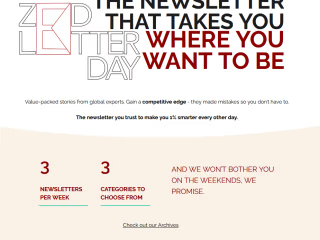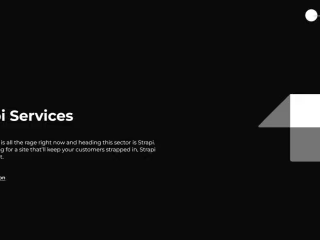SEO writing
What I did:
SEO Content: Who’s a web developer and how can I become one?
Updot’s Ultimate Guide to Web Development
An introduction to web development
Scope of web development and web developers
The difference between web development and web design
Types of web development:
Programming languages for web development
Build Projects to Develop Your Web Developer Skills
Building a Web Development Portfolio:
3 Steps to Build an Incredible Web Development Portfolio
Conclusion
How I did it:
What I did:
I did SEO work for a web agency Updot including blog posts based on keyword research. Apart from general SEO blog posts, I also wrote for service pages, case studies, website copy and more!
Below you can read some of my SEO blog content, you can find more of my work on their website at: updot.co
SEO Content: Who’s a web developer and how can I become one?
Updot’s Ultimate Guide to Web Development
An introduction to web development
The internet is booming. More companies are turning to e-commerce websites and the web developer scope in India has never looked more promising.
Web development is an umbrella term for any of the work involved in building a website including markup, coding, scripting, network configuration, and CMS development.
While these terms might be alien, it just means that web developers make appealing high functioning websites that get the job done and look great while doing it!
Scope of web development and web developers
On average a Web Developer makes anything from Rs.120,000 to Rs.870,000 per year.
This depends on factors like the company and city, and in particular, web development in Bangalore is showing great promise with 25% more pay than their counterparts in other cities. A web developer in Bangalore makes around Rs.4,26,000.
The average entry-level salary is ₹230,070.
The average mid-level web developer salary is ₹580,440
The average experienced web developer salary is ₹1,006,400
The difference between web development and web design
A web designer deals with graphics and designing the visual appearance of a website along with its overall layout, feel and idea. Meanwhile, a web developer builds and maintains the functional structure of the website. Each requires its own skill set.
If you want to be a successful web designer your interests should tilt towards creative, graphic, and technical skills. Apart from web design software, you would have to deal with UX, UI and visual elements.
Web designing requires tools like Photoshop for design editing and CMS like WordPress to focus on the appearance and usability of the website.
If you’re interested in the technical side of things, web development is your calling. Web development tools involve languages such as HTML, JavaScript, PHP, and Python.
This role calls for complex programming languages or if you’re more interested in WordPress, you could niche into becoming a WordPress developer.
Types of web development:
1. Front-end web developers
A front-end developer works on the visual part of the website, which is what the users see and interact with. These developers aim to create a responsive web design that is compatible across all devices, including a mobile website so clients have a website that looks great anywhere.
2. Back-end web developers
A back-end developer creates the website’s structure and writes code. While the front-end developer creates a visually appealing website, a back-end developer makes it work.
3. Full-Stack Developer
Now that you know what a front-end developer does and what a back-end developer does, it might seem like both sound great. If that’s what you resonate with, a full-stack developer is your gig.
Programming languages for web development
If you’re interested in turning to web development, it’s easy to learn web development today with the countless web design courses available online.
1. Markup languages:
You’ve probably already heard of HTML. The most popular markup languages today are HTML and XML. HTML stands for HyperText Markup Language. XML stands for eXtensible Markup Language and it’s really similar to HTML.
HTML is more focused on display and visuals and the overall look while XML was designed for the sole purpose of storing and transporting data.
2. Style sheet languages
Style sheet languages are used to style documents so that they’re visually more presenting. A document is written in HTML and then styled with CSS. HTML covers the content and structure side while CSS adds colours, fonts, backgrounds, borders and style overall.
3. Database languages
Databases deal with an entirely different set of skills so you’ll need to learn different languages such as SQL(Structured Query Language) which is the standard language to access and manipulate relational databases.
Build Projects to Develop Your Web Developer Skills
Once you’ve got the basics of HTML, CSS, and JavaScript, as well as some programming abilities, you’re ready to get started. You’ll gain expertise and expand your set of web developer talents as you go but it’s important to start by building some projects.
There are lots of open-source projects online with publicly available source code that anyone can modify. This is a great way to start for new developers.
Open-source projects also give you the opportunity to work with other developers and you make great connections. There are lots of project ideas like a one-page site, a login page or a landing page that you could play around with.
Building a Web Development Portfolio:
Why you need a Web Development Portfolio?
You need a web development portfolio to:
• help you stand out amongst other developers
• show your skills and expertise
• give your employer an idea of your style of work
• show off all those great projects you’ve worked on
• provide links to your social media and contact details
3 Steps to Build an Incredible Web Development Portfolio
1. Before you get to work, check out web developer portfolios online for inspiration and a general idea of what you’re trying to achieve.
If there’s a specific layout you like or a colour scheme you personally find attractive, use those in your portfolio!
2. Remember that this site is more than just a portfolio, it’s a website of its own and you need to treat it with the same creative outlook you’d have when developing a website.
Add in quirky details to show off what you can really do.
3. Choose your projects carefully, be sure to include ones that accurately represent your style and your abilities. Choose projects that are recent and that you’re personally proud of.
Talk about your design skills and your experience but unlike a resume, a portfolio is all about showing, not telling. Let your work speak for itself.
Conclusion
If you’re interested in web development and you want to test the waters, it’s now or never. The field is growing and there’s great scope for whatever type of web development you want to niche into. You can start off learning web development with courses online, create projects to gain some experience, build a portfolio and then you’re all set to turn to web development!
How I did it:
I used tools like Keywords and Ahrefs for keyword research and wrote blog posts that maintain keyword density, quality, and overall structure.
Usually SEO work, particularly with SEO blog posts, tend to turn into a garbled mess of haphazard keywords peppered through out filler words. However, I believe that SEO writing can fulfill a function while also reaching beyond and providing quality information. Which is exactly what search engines tend to prioritize and hence the success in my SEO work.
Like this project
Posted May 28, 2024
I did SEO work for a web agency Updot including blog content, service pages, and website copy. You can read one of my pieces here as well as how I did it!







